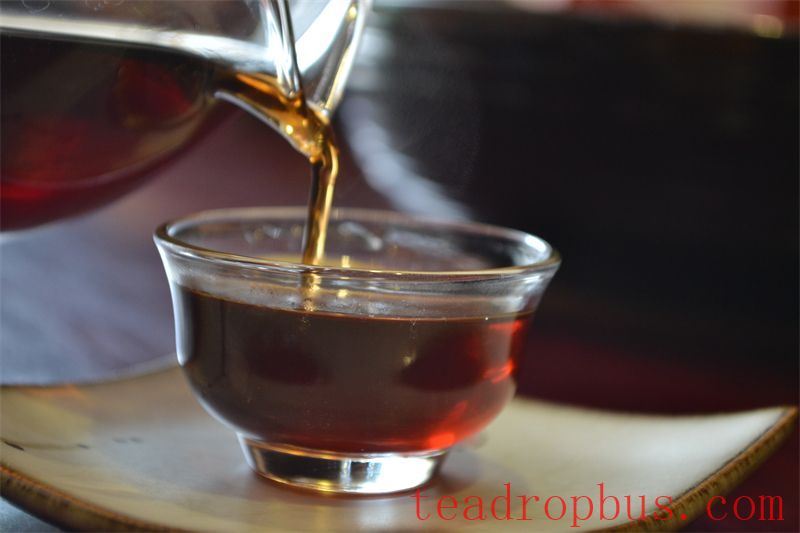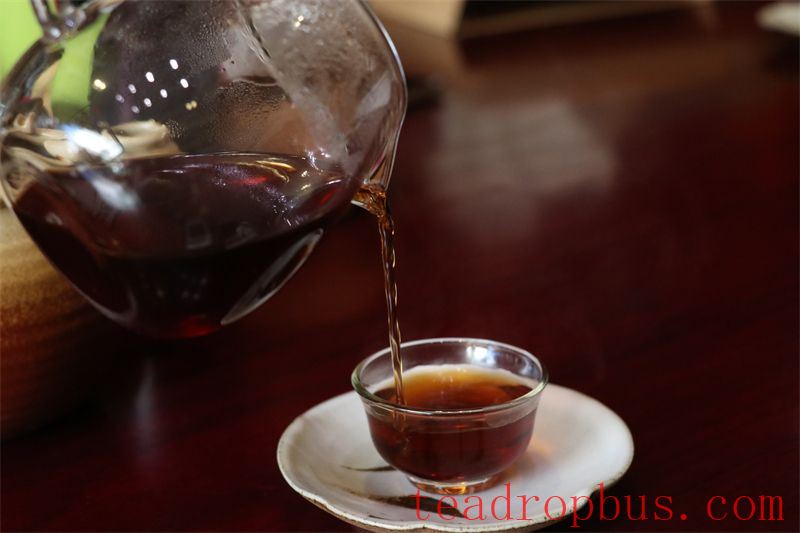Why do we need to nourish our bodies in winter? Because the winter climate is harshly cold, and natural plants and animals are in a dormant state of storage. Humans also follow the changes in nature, entering the season of storage.
Cold is a yin pathogen that easily harms yang energy. The body needs warmth to combat the cold, and this period marks the transition from dry to cold seasons, where dryness is more pronounced. Diet should be focused on nourishing yin and tonifying yang.
As ancient Chinese medical texts like “The Inner Canon” state: “Those who store essence in winter will not suffer from fevers in spring,” meaning that fortifying oneself in winter can prevent illnesses in spring.
Drinking Tea is a traditional health practice passed down through generations, helping with warmth and stomach care, as well as promoting blood circulation and metabolism. It also relaxes the mind and body, achieving multiple benefits at once!

1. Moderation is Key; Avoid Random Nourishment
First, you should determine if you need to nourish your body and understand your constitution and which organs may be deficient. Generally, middle-aged people should focus on strengthening the spleen and stomach, while older people should focus on nourishing kidney qi.
However, for individuals, there are different types of deficiencies, such as qi deficiency, blood deficiency, yin deficiency, yang deficiency, or a combination of these. Careful analysis is necessary, ideally under the guidance of an experienced doctor. This way, you can target your needs effectively and avoid over-nourishment.
2. Avoid Excess, Imbalance, and Chaos in Nourishment
For those with poor health and digestive issues, the priority should be restoring digestive function. Without a healthy digestive system, taking supplements would be futile.
Therefore, when nourishing in winter, avoid overly rich and heavy foods, focusing on what's easy to digest. When nourishing, also maintain balance between qi, blood, yin, and yang; don't overemphasize one aspect to the detriment of others. If you have a cold or cough, avoid nourishment, as it can harbor lingering illness.
3. Don't Judge by Price and Don't Rely Solely on Supplements
For how to nourish properly, it's best to seek guidance from a doctor.
Regarding supplements, don't assume that more expensive means better or more effective. For those seeking longevity, relying solely on supplements isn't a good strategy.
It's important to combine appropriate exercise, dietary adjustments, mental stimulation, and maintaining tranquility to achieve true health and wellness.

So, how should you nourish yourself with tea in winter?
Here are some recipes for you to enjoy tea and nourishment simultaneously, ensuring your winter health starts with a cup of wonderful tea.
Black Tea: Warm Stomach and Nourish Yang
Black tea is a fully fermented tea with characteristics of red tea, red infusion, red leaves, and a sweet aroma. Compared to the cool nature of Green Tea, black tea is gentler and doesn't harm the stomach but rather nourishes it.
However, black tea shouldn't be consumed cold, as it reduces the warming effect and can lower nutritional content.
Milk Hot Tea – Refreshing and Warming
Ingredients: 5 grams of black tea, 15 grams of sugar, 75 grams of milk.
Instructions: ① Steep the black tea and set aside; ② Heat the milk to boiling, then remove from heat; ③ Add sugar and mix with the tea water, drink while hot.
Ginger Black Tea – Warm the Whole Body
Place 5g of black tea and 5 slices of peeled ginger in a cup, pour boiling water over them, and enjoy a warm cup of ginger black tea.
Dark Tea: Nourish Stomach and Aid Digestion
Dark tea contains abundant dietary fiber, caffeine, vitamins, and other nutrients that can accelerate digestion and absorption of food. Compared to black tea, dark tea further stimulates gastric acid secretion, aiding digestion.
This difference is evident to anyone drinking dark tea. Therefore, dark tea not only warms the stomach but also regulates digestion.
The caffeine in dark tea can increase gastric juice secretion, enhancing appetite and improving overall digestive function.
Chrysanthemum Pu'er – Aid Digestion and Reduce Greasiness
Use Pu'er tea and chrysanthemum in a 3:1 ratio, steep together for a refreshing taste.
Jujube Goji Pu'er – Nourish Blood and Strengthen Stomach
Combine the three ingredients in a pot and boil. The flavor is rich, with a full jujube aroma.
Honey Ripened Pu'er – Cleanse the Intestines and Detoxify
Boiling water destroys honey's nutrients, so add honey to Pu'er tea when it cools to 60 degrees Celsius.
Ripened Pu'er has a warming nature, effectively supporting stomach health and counteracting the potential irritation caused by honey.
Floral Tea: Drink for a Good Mood
Floral tea combines the benefits of flowers and tea, containing many nutrients.
Petals contain various vitamins, proteins, minerals, amino acids, sugars, and other substances. Drinking floral tea long-term avoids side effects and has effects such as regulating digestion, strengthening the stomach, and balancing blood flow.
Floral tea suits all kinds of people, suitable for all ages. It not only uplifts the spirit but also provides Health benefits.
4. Food Nourishment: Different Constitutions, Different Methods
|Balanced Nourishment|
Refers to foods with a neutral nature that help maintain health and vitality, such as grains, beans, dairy products, fruits, and vegetables. These foods have a mild nature, and people with qi, blood, yin, and yang deficiencies can all consume them.
|Warm Nourishment|
Refers to warm-natured foods, such as beef, mutton, loach, sweets, dates, longan, lychee, and spices like ginger. Cold-intolerant women in winter can eat these foods to support yang, alleviating the feeling of being cold in winter and enhancing physical strength.
|Cool Nourishment|
Refers to cool-natured foods, such as pears, raw lotus root, celery, lily, mung beans, cucumber, soft-shell turtle, and freshwater snails. They have a cooling effect and are suitable for those who tend to get heat symptoms during the dry winter weather.
|Warm Dispersing|
Refers to pungent and warm-natured foods, such as chili peppers, Cinnamon, mustard, coriander, and Sichuan pepper. These foods have a warming and dispersing effect and can be used to help keep warm and eliminate dampness during rainy and snowy winter weather.
This winter, start with a great cup of tea and enjoy health and wellness with every sip.